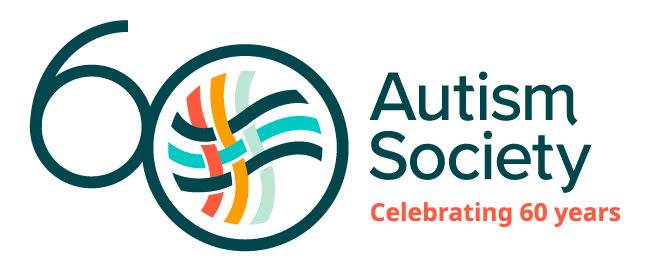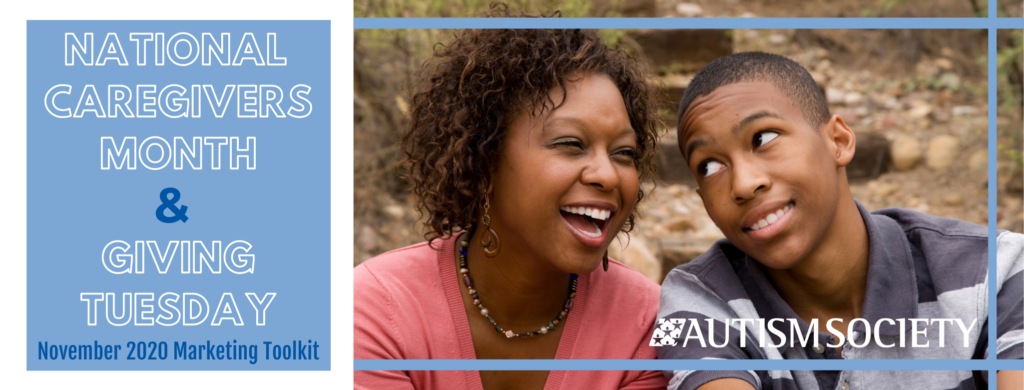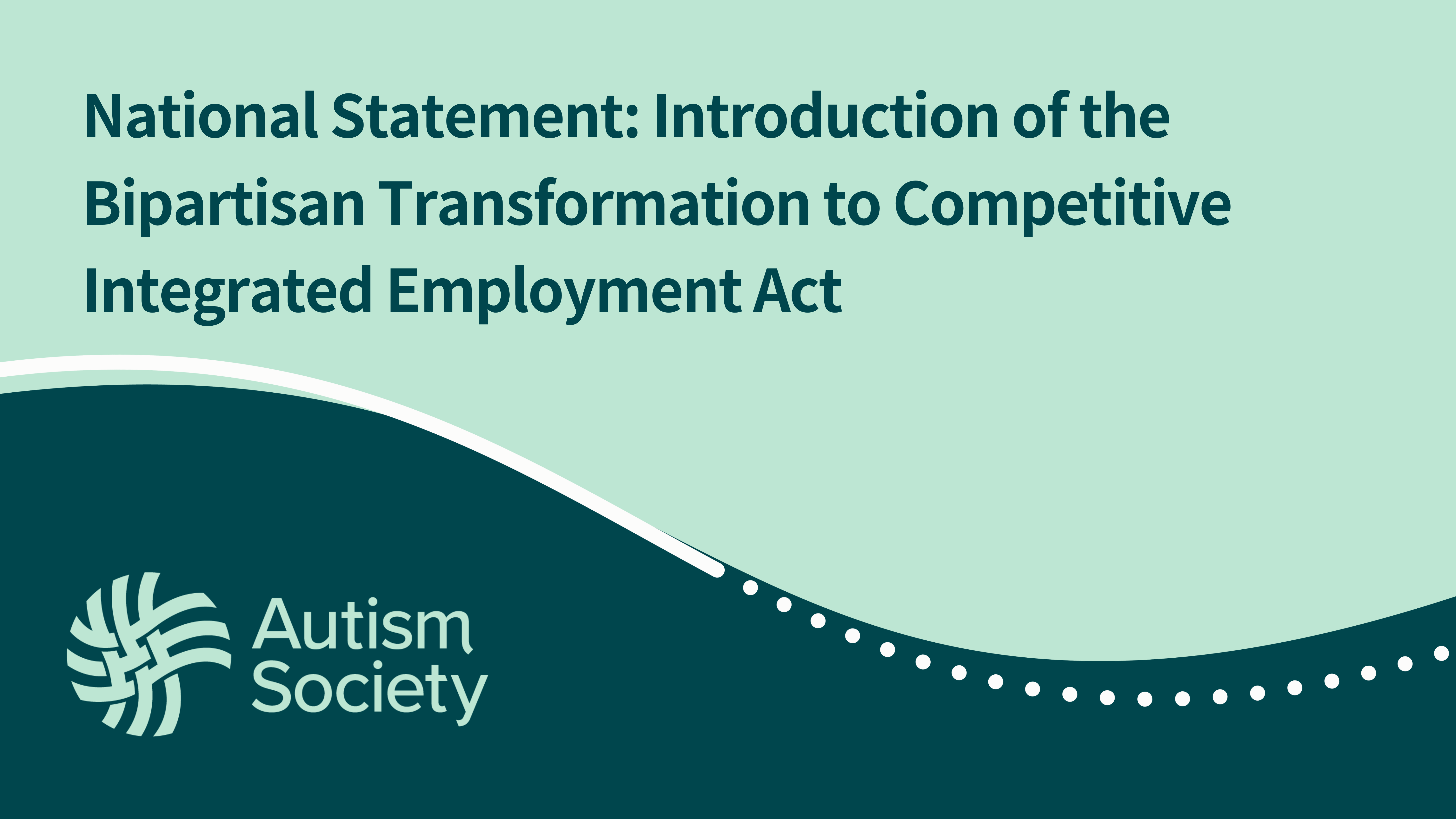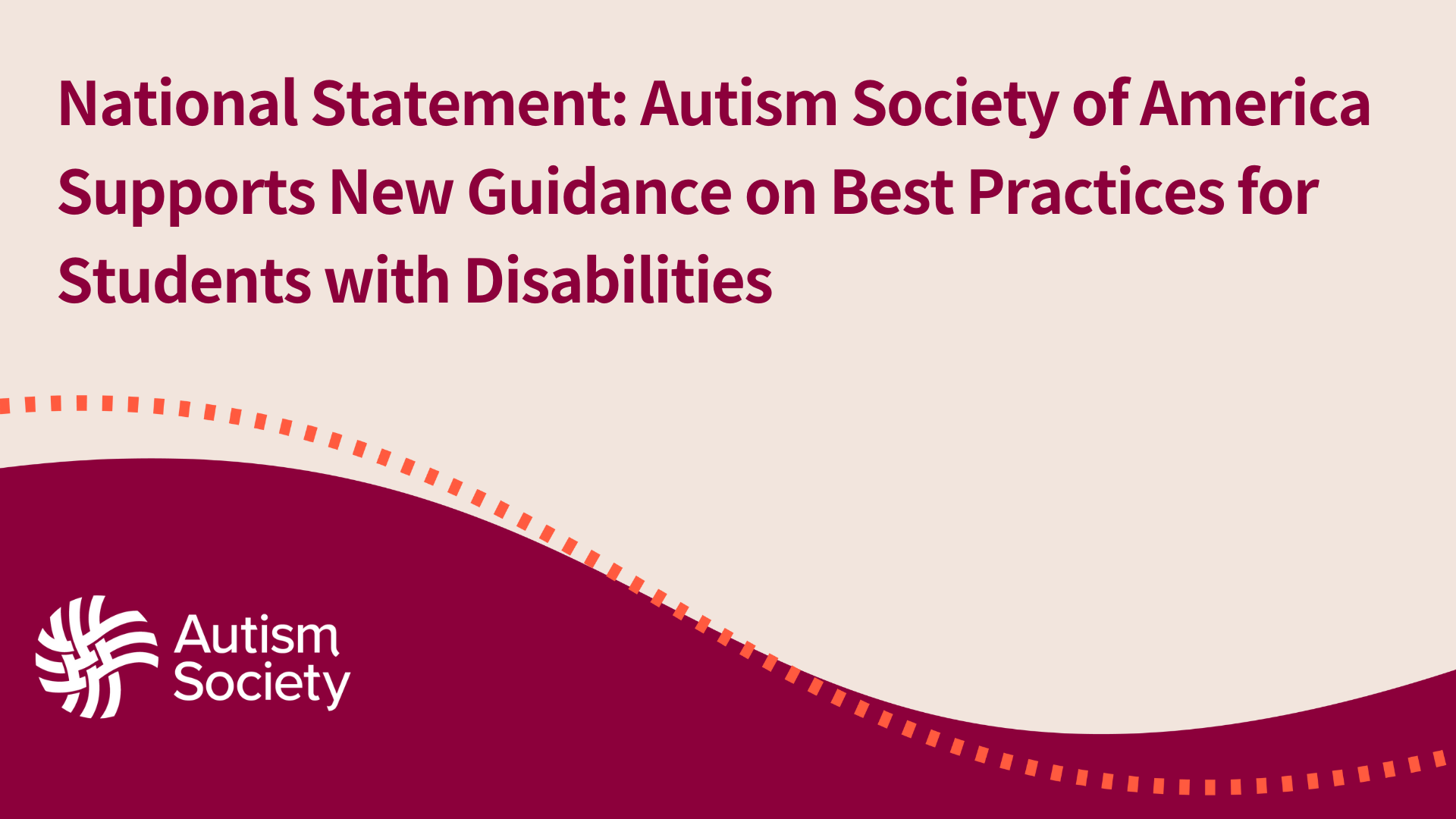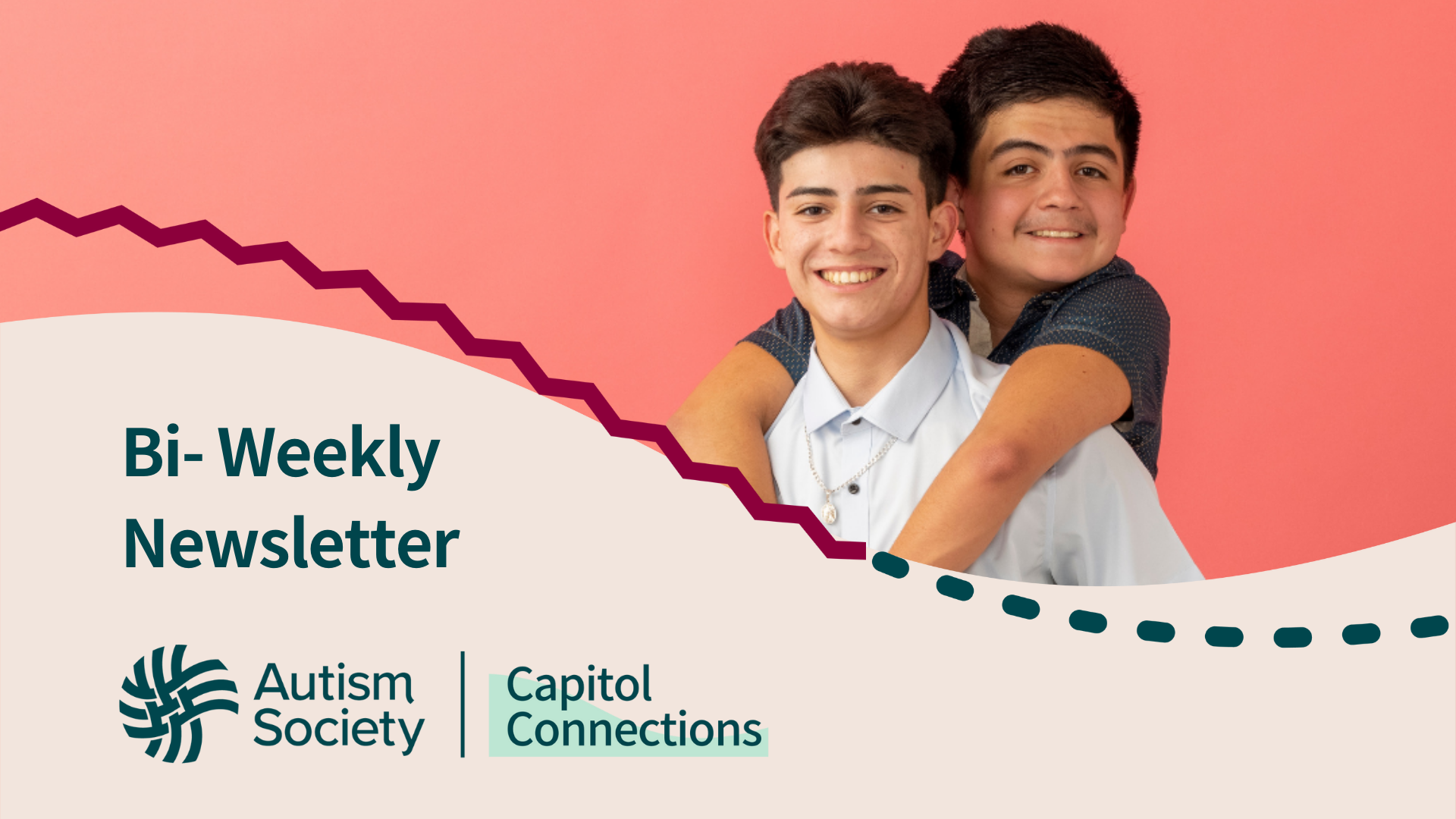
In this issue of Capitol Connection, see updates regarding legislation including voting rights, the Build Back Better Plan, marriage penalty, social security, and appropriations. In addition, updates about COVID relief to education, access to free tests and N95 masks, and the upcoming Disability Policy Seminar. Remember, the Autism Society’s Action Center provides easy steps for advocates to educate Congress about these and other issues impacting the Autism community.
Suicide Prevention Webinar
In July 2020, the Federal Communications Commission (FCC) designated 988 as the new three-digit number for the National Suicide Prevention Lifeline. The number will be active beginning this July 2022. The hotline will have trained staff to answer calls from individuals at risk for suicide as well as those experiencing other mental health emergencies. All telecommunications companies will have to make the necessary changes so individuals can access the National Suicide Prevention Lifeline using the 988 dialing code. For many people with autism and other disabilities, particularly people of color and people in the LGBTQ+ community, a law enforcement response to a mental health emergency has ended in poor outcomes, including death and incarceration. 988 holds the promise of equitable healthcare response to a healthcare issue. This promise will only be fulfilled if adequate resources are available to accommodate increased volume, as well as the continuum of crisis care services that can stem from the 988 call.
The Arc of the U.S. and the Autism Society of America are providing a joint webinar with an overview of the new program and what it will take to implement the new 988 National Suicide Prevention Lifeline. Join the Webinar on Monday, January 31st at 1 p.m. to hear more. Sign up here: Webinar Registration – Zoom
Voting Rights Legislation
On Wednesday, January 19, the Senate failed to pass the Freedom to Vote: John R. Lewis Act (HR 5746). The vote was 51-49; sixty votes are needed to move to a vote on the bill. Senate Majority Leader Schumer (D-NY) then attempted to change the rules of filibuster procedures to allow the bill to go forward without 60 votes to end a filibuster, similar to the way Congress avoided the filibuster to raise the debt ceiling. This vote failed with all Republicans and two Democrats voting against the rule change. In 2021, 19 states enacted 34 laws that some organizations like the Brennan Center For Justice consider “restrictive” and makes voting more difficult for Americans. HR 5746 would make changes to protect against some of these restrictions, including provisions to make voting accessible for people with disabilities.
Build Back Better
Movement on the Build Back Better Act continues to be stalled (see the previous issue of Capitol Connection). However, during a lengthy press conference last week, President Biden said that he remains committed to moving his Build Back Better agenda forward. The Autism Society continues to advocate for Congress to continue bipartisan negotiations on the bill and to ensure that any bill moving forward contains funding to continue to build the capacity for home- and community-based services (HCBS), special education, housing supports, and provisions to improve Supplemental Security Income (SSI).
Appropriations
Congress must finalize the fiscal 2022 omnibus spending bill by the February 18 expiration date of the current continuing resolution. Congressional leaders hope to get an agreement on topline funding allocations and a process for resolving policy disputes this week. If an agreement is not reached, advocates fear that Congress will concede to a year-long CR. This would severely limit the chance for important increases for programs that support people with autism. The House-passed appropriations bill provided significant funding increases for education, employment supports, respite care, and other developmental disabilities programs. At least one of our affiliates would receive important funding for first responder training. The Autism Society will continue to advocate for Congress to come to an agreement on the final funding bills for FY 2022.
Want to better understand the Federal budget and appropriations process? See a short video from the University of Maryland.
Social Security
The Autism Society is joining CCD colleagues in Hill meetings to urge bipartisan support for the Work Without Worry Act. This bill eliminates a work disincentive by allowing young adults with disabilities to try and work and see if they can support themselves without losing eligibility for “Disabled Adult Child” (DAC) benefits. If passed, earnings from work over the Substantial Gainful Activity (SGA) level will not prevent the individual from receiving DAC benefits from their parent’s work history as long as the individual remains disabled by the impairment from before age 22 and meets other eligibility conditions for benefits. The benefit amount will be either the benefit from the individual’s parents or the benefit from the individual’s own work history, whichever is higher. Currently, if a young person with a disability has countable earnings of even a dollar over the SGA level ($1310 a month in 2020) before receiving DAC benefits, they lose their eligibility for DAC benefits forever. This creates a disincentive to work for young adults with disabilities, who may want to try and work, but who are unsure of their capacity and need to try working different numbers of hours. For more information, see CCD’s letter of support and The Arc’s recent blog about the issue.
Marriage Penalty Bill
On January 13, Representative Jimmy Panetta (D-CA) introduced the Marriage Equality for Disabled Adults Act, which would eliminate requirements that disabled adult children (DAC) remain unmarried in order to receive Social Security benefits and Medicare and Medicaid. The Autism Society supports this long-overdue policy change. See Rep. Panetta’s press release for more information.
Education
On January 18, the U.S. Department of Education announced that every state education agency (SEA) received approval of their American Rescue Plan Elementary and Secondary School Emergency Relief (ARP ESSER) plan before the end of December 2021. As a result, the Department has distributed all $122 billion of ARP ESSER funds to all 50 states, the District of Columbia, and Puerto Rico. The announcement contains links to the individual state plans, a new resource to state and local leaders on how federal funds can be used to achieve in-person learning safely. Additionally, last week, the Administration announced the availability of millions of new tests each month to help schools safely remain open and implement screening testing and test-to-stay programs. These resources can be used to advocate with the state education agency for special education and related services using these federal funds.
Crisis Response Resource
As many state and local governments across the country are redesigning their crisis response systems to better meet the needs of people who experience crises as a result of their behavioral health conditions, the Technical Assistance Collaborative (TAC) published an issue brief with recommendations to successfully implement Medicaid-funded mobile crisis teams, including the use of the new 988 hotline to begin in July of 2022. The brief also identifies opportunities to develop a broader service continuum. This resource was created with the support of the California Health Care Foundation and Charles and Lynn Schusterman Family Philanthropies.
The Arc of the U.S. and the Autism Society of America are providing a joint webinar with an overview of the background and what it will take to implement the new 988 National Suicide Prevention Lifeline. Join the Webinar on Monday, January 31st at 1 p.m. to hear more. Sign up here: Webinar Registration – Zoom
COVID Prevention Resources
The Autism Society participated in a call with the White House Office of Public Engagement where updates were given about what the Administration is doing to meet the needs of people with disabilities during the pandemic. Administration officials discussed the launch of the website and initiative to get COVID-19 at-home tests delivered to homes via USPS (four per household). The first 20% of orders going out will be sent to zip codes of the highest vulnerability. The website is accessible; however, individuals may also call toll-free to place an order at 1-800-232-0233. In addition, N95 masks which have been found to have the best protection against the Omicron variant will be made available at community centers, pharmacies, and grocery stores for free starting this week. Find a health clinic near you: https://findahealthcenter.hrsa.gov. For more information, see the White House fact sheet and CDC FAQs. The Disability Information and Access Line (DIAL) is also available to help people with disabilities get vaccinated and access COVID-19 tests.
IACC
The Interagency Autism Coordinating Committee (IACC) met on January 19 to discuss business, agency updates, and issues related to autism spectrum disorder (ASD) research and services activities (see agenda). The meeting included a review of Social Security work incentives; an overview of the 2021 HHS Report to Congress on Health and Well-Being (mandated by the Autism CARES Act); an overview of the Lancet Commission report on autism; report on funding for research and surveillance, public comments, and other business in a packed agenda. A recording of the meeting will be archived on the IACC website.
CCD Annual Meeting
The Consortium for Constituents with Disabilities (CCD) held its annual business meeting on January 12-13. The annual reports for each of the various policy task forces can be viewed on the CCD webpage. Max Barrows, an autistic self-advocate from Vermont, gave a keynote address on the topic of the intersection of disability and race. A recording will be shared soon. Kim Knackstedt, Director of the Domestic Policy Council at the White House, also spoke to the group about the Administration’s policy initiatives. The Autism Society is a long-time member and represents or leads several of the policy task forces.
Disability Policy Seminar
Registration for the 2022 Disability Policy Seminar Is Now Open! Register now for the 2022 Disability Policy Seminar, a hybrid event, with opportunities to join us in person in Washington, DC, or virtually from March 28–30. The Disability Policy Seminar will offer the opportunity for passionate advocates, self-advocates, experts, and professionals in the field to come together and learn about key issues that affect them most. After attending, you will have the tools to bring strong advocacy to virtual meetings and other follow-up actions as we work to raise awareness among members of Congress about issues important to the disability community. Register now.
Family Caregivers
On January 25, the Administration for Community Living (ACL) held a joint meeting of the RAISE Family Caregiving Advisory Council and the Advisory Council to Support Grandparents Raising Grandchildren (SGRG). The Council is beginning the development of the National Family Caregiving Strategy. See the website for more information and a preliminary report.
State Advocacy
On January 20, a settlement was reached in North Carolina to phase out the use of subminimum wage certificates (Section 14 (c ) of the FLSA) over 5-years, including no new admissions effective July 1, 2022. Of note is that the agreement states the “plan’s implementation is “subject to availability of funds. The North Carolina Department of Health and Human Services (DHHS) will pursue a funding request to the NC General Assembly for CIE efforts.” The agreement promises to help over 1,000 NC workers who currently work in segregated environments, where they often work for less than the minimum wage. Passage of the Transformation to Competitive Integrated Employment Act will help states like NC make this transition. See the NCDHHS press release for more information.
Share:

